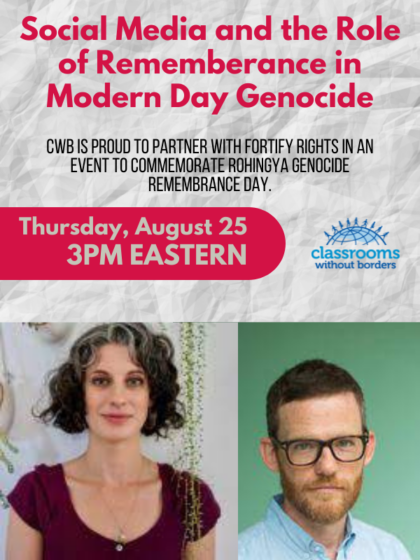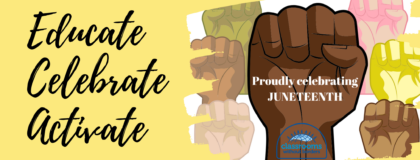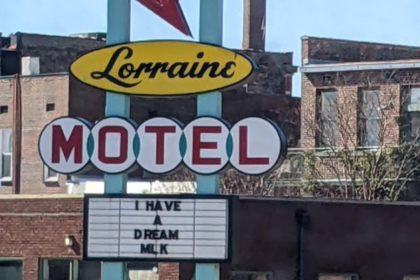Civil Rights
This interactive multimedia site provides its users with quick facts, visual representations, and reliable information on pressing transatlantic challenges. The site will spotlight trending transatlantic topics and find potential alignment between the United States, the United Kingdom, and the European Union as well as its 27 member states.
Read MoreHow to Address Trauma Related to Curriculum Violence
What Is Curriculum Violence?
Curriculum violence refers to the subjective curricular choices around lesson planning or learning experiences that cause a student psychological harm, intellectually and/or emotionally. These educational interactions can exacerbate historical or institutional trauma, particularly for historically oppressed and marginalized groups such as people of color, women, people of varying faith, members of the LGBTQ community, people with disabilities, dual-language learners and people from immigrant populations.
2023 Marching Down “Freedom’s Road”: Civil Rights to the Black Freedom Movement
Social Media and the Role of Rememberance in Modern Day Genocide
CWB is proud to partner with Fortify Rights in an event to commemorate Rohingya Genocide Remembrance Day: With Dr. Alexis Herr- Moderator Human rights violations happen every day without justice […]
Read MoreDescribed as a second independence day, June 19th or Juneteenth marks the day that emancipation reached slaves in the furthest reaches of the South. While the Emancipation Proclamation proclaimed that […]
Read MoreEditor’s note: Since the publication of this article, Juneteenth was declared a federal national holiday in 2021.
Each year around June 19, Black communities across the country unite for a family reunion of sorts. Juneteenth activities feature the sights and sounds of Blackness: People enjoying art, music and food that connect them to a shared ancestry and history. They celebrate being their authentic selves. They celebrate freedom in both solemn and festive ceremonies.
This celebration marks a day in 1865 when enslaved Texans learned they’d be free—two months after Robert E. Lee surrendered and ended the Civil War and two and a half years after President Abraham Lincoln issued the Emancipation Proclamation. Initially a uniquely Texan observance, Juneteenth has now been recognized in some form in every corner of the country.
Read MoreTeaching Resources about Gun Violence from National Council for the Social Studies
Teaching resource and background articles on teaching about gun violence from NCSS, members, colleagues, and news outlets: NOTE: National Council for the Social Studies (NCSS), is providing these resources for […]
Read MoreReflections of a Shared Journey – Day 7
Ellen Resnek | Educational Programs and Outreach Manager, CWB We entered into our community of learners a band of educators, scholars, administrators and community change makers and in that space […]
Read MoreOur honored guest was Charles Person, one of two surviving Freedom Riders to have made the trip in its entirety from Washington DC to New Orleans. The songs of the movement sustained him, he said, especially so when he knew that he should have felt fearful, and no song strengthened him more than “Oh Freedom.”
Read MoreSites of Violence, Sites of Healing – Day 5
Laura Thomson Sites of Violence, Sites of Healing Today we visited the National Memorial for Peace and Justice and the Legacy Museum, both located in Montgomery, Alabama. We were warned […]
Read More









